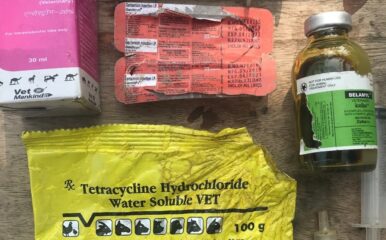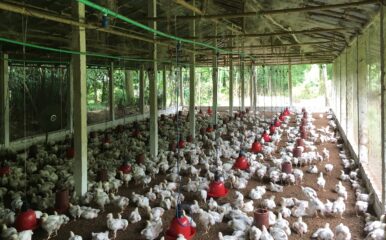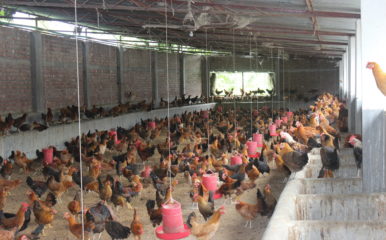
Enhancing poultry education: the launch of a new One Health teaching laboratory
Published on 05/06/2024
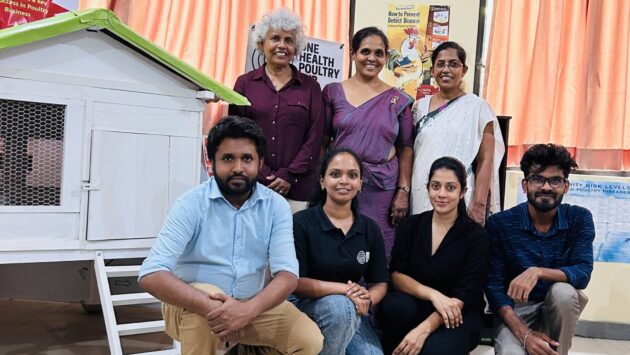
In an interconnected world where human, animal and environmental health are inextricably linked, the concept of One Health has emerged as a vital framework for addressing complex health challenges. While traditionally focused on animal health, veterinarians play a pivotal role in promoting and advancing One Health principles. Hence, teaching One Health concepts to veterinarians is paramount in addressing the complex health challenges.
In the realm of veterinary education, integration of basic knowledge via small group discussions through problem-based learning techniques is invaluable. It’s where learners can practise application of the theoretical knowledge to foster deeper understanding and soft-skill development.
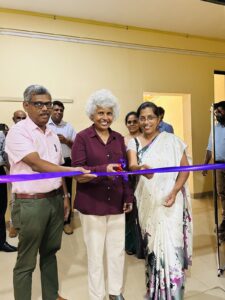
Professor Ayona Silva-Fletcher and
Professor Ruwani Kalupahana officially open the laboratory.
Recognising this importance, we’re thrilled to announce the establishment of our new teaching laboratory at the Faculty of Veterinary Medicine and Animal Science at the University of Peradeniya – the One Health Poultry Production Laboratory, which aims to teach One Health concepts in the context of the poultry industry.
Being one of the globally most important livestock industries, poultry plays a key role in global food security, economic development and environmental sustainability. Further, the poultry industry is the most important and developed of the animal industries in Sri Lanka. Considering the multifaceted importance of the poultry industry in the global setting, as well as in local ones, and the direct public health impacts caused by poorly managed intensification of the same, educating veterinarians on all aspects of poultry industry is rightly gaining extra attention.
Inquiry-based veterinary learning
The inception of our teaching laboratory stemmed from a collective vision to transform traditional education paradigms. We envisioned a space where students could engage in interactive, inquiry-based learning, breaking away from routine memorisation and passive instruction.
With this goal in mind, we meticulously planned every aspect of the laboratory, from its layout and equipment to its curriculum and teaching methodologies. In the laboratory, we will be leveraging technology to facilitate virtual collaboration, enabling students to connect with peers and experts worldwide. Using the internet we will be able to access learning materials and laboratory resources and break geographical barriers and expand the horizons of learning.
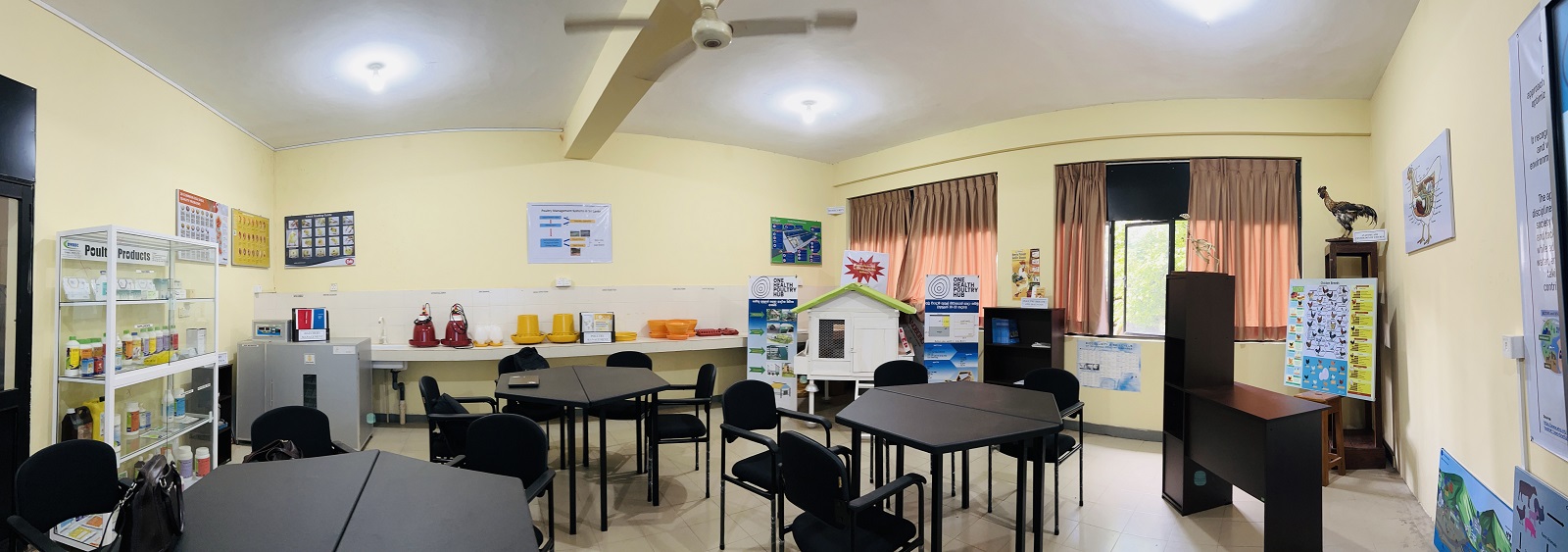
This veterinary faculty is the only educational institute in the country that offers veterinary degrees. It thus carries the utmost responsibility for providing the required knowledge and skills to its graduates, who will go on to play their part in ensuring safer and more secure poultry production. A recent curriculum revision included the extension of its duration by one academic year to allow for a year of uninterrupted clinical teaching, alignment and amalgamation of related material, and the introduction of problem-based learning modules. To cater for the new curriculum and the establishment of small-group teaching, facilities like our new laboratory were a necessity.
Undergraduate curriculum students currently learn about aspects of the poultry industry under more than 10 different courses which span the first four years of their studies. The new laboratory will be an asset to integrate all subject areas related to poultry production and health to effectively teach problem-solving related to poultry management and veterinary public health, all within the One Health umbrella. The initiative aims not only to enhance the educational experience of our students, but also to promote research, collaboration and real-world problem-solving.
Interdisciplinary collaboration
Collaboration lies at the heart of our One Health Poultry Production teaching laboratory. We believe learning is not a solitary endeavour, but a collective effort. Already, members of academic staff from four out of the five departments in the faculty have generously contributed to the laboratory’s functioning. To that end, we encourage interdisciplinary collaboration, bringing together students and staff from different fields to tackle complex challenges such as antimicrobial resistance associated with the poultry industry. The laboratory is serving as a centre for brainstorming, problem-solving and knowledge exchange, fostering a culture of teamwork and camaraderie.
The One Health Poultry Production teaching laboratory represents a bold step towards reimagining education, fostering creativity, collaboration and critical thinking. We’re embarking on a new era of experiential learning which will inspire minds, ignite curiosity and unlock the boundless potential of education.
As we look to the future, we remain committed to advancing the frontiers of education through innovation and excellence. Our teaching laboratory will continue to evolve, incorporating emerging technologies, pedagogical approaches and feedback from the educational community. Together, we will shape the next generation of innovators, problem-solvers and leaders, empowering them to have a meaningful impact on the intensification of the poultry industry under the One Health umbrella and minimising risks to public health.
- Featured image: Back row – Ayona Silva-Fletcher, Palika Fernando, Ruwani Kalupahana; sitting – Aruna Adikari, Madushi Thilakshika, Deepthi Ihalage, Naveen Shirantha

